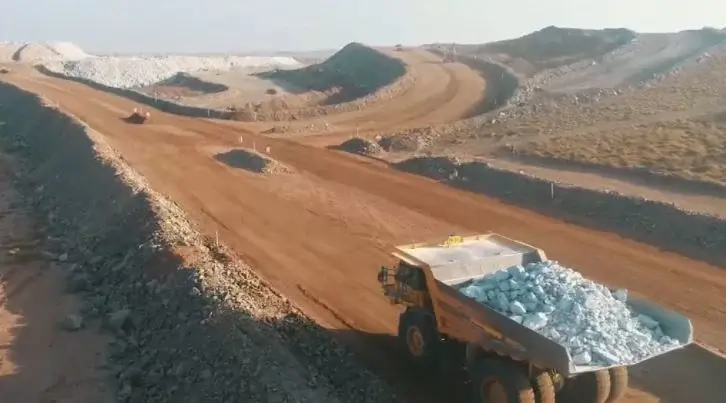Manufacturers of metal raw materials for batteries and specialty chemical concentrates for electric vehicles are outperforming sector leaders like Tesla Inc. in the stock market as key raw material prices rise due to limited supply and wider adoption of zero-emission vehicles.
Shares of Pilbara Minerals Ltd., a Perth-based lithium feedstock supplier, are up more than 210% this year from Thursday's close, while Ecopro BM Co. and L&F Co., South Korean manufacturers of cathode-active materials, added in price. than 200%. Companies topped the Bloomberg Electric Vehicles Total Return Index, which tracks 69 businesses, including automakers and technology developers, for a total of over $ 2 trillion.
“Raw materials have been proven to be scarce and profits have increased quite quickly,” said Pilbara CEO Ken Brinsden. A mining company that has supply agreements with firms such as battery giant Contemporary Amperex Technology Co. Ltd., cut production in mid-2019 due to falling prices and has since recovered thanks to the resurgence of lithium, expansion of operations and the acquisition of a rival manufacturer's project.
Battery manufacturing capacity is expanding faster than supply chains can grow, resulting in severe shortages of certain components and shortages of materials such as copper foil. With such strong demand, mining companies and chemical manufacturers were able to raise prices and increase profits.
“Investors are focusing more on component and metal suppliers as they seek hidden gems in the battery supply chain,” said Horace Chan, a chemicals analyst based in Bloomberg Intelligence in Hong Kong.
Cathodes, usually the most expensive part of a lithium-ion cell, are one of the four main components in every battery, along with the anode material, electrolyte, and separator. Analysts predict L&F sales will triple this year to 1 trillion won ($ 850 million). Choi said there will be at least 2 trillion won in sales by 2022.
Lynas Rare Earths Ltd., a rare earths producer registered in Australia and with a plant in Malaysia, is another leader in the Bloomberg Index, up about 132%. Tesla is up about 32% this year.
Pilbara's Brinsden said battery factories could be proposed and built in about 18 months, while mines typically take 7 years or more, indicating that raw material supplies are likely to remain limited. and prices will remain high.
“There will probably be more pain and heartache. The supply cannot respond as quickly as people think, and it happens at the same time as demand increases, ”he said. “There is no quick fix for the industry.
High metal prices could be problematic for companies like L&F, Choi said, and this is driving battery recycling efforts to extract raw materials from used packaging.
In October, L&F partnered with Redwood Materials Inc., a battery recycling company formed by Tesla co-founder JB Straubel, to collaborate in Europe and the United States. “Now everyone is talking about a shortage of metals used for batteries,” Choi said. "But if recycling is realized, say, about 80% of the cathode in used cells can be removed and reused for new electric vehicles ten years from now." This would reduce the burden on supply and bring costs down to 60% of the current level.
According to Choi, battery makers plan to continue large-scale expansion, but L&F has risks to keep pace with this growth and potentially saturate the market as competing suppliers also ramp up capacity.
L&F will consider “which one should we prioritize between profitability and growth,” he said. “Our immediate goal is primarily to strengthen alliances with potential partners in the US and Europe and strengthen our presence in the industry.”




